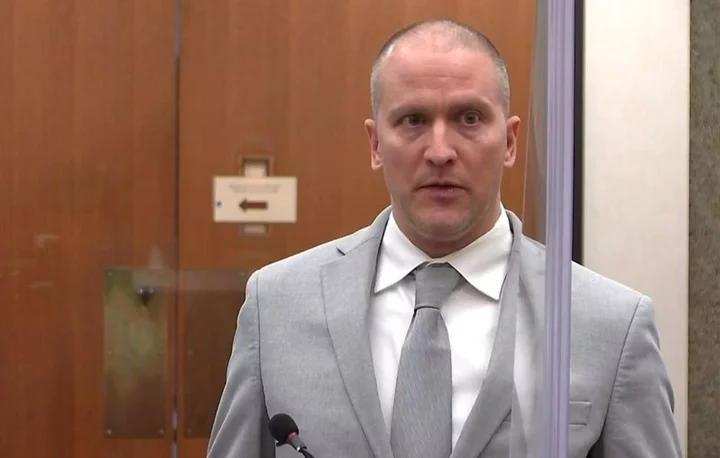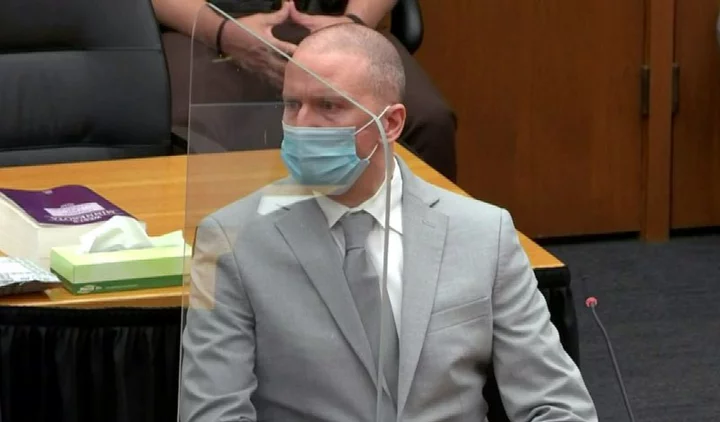
Scientists find six planet system where stars orbit in rhythmic beat
Astronomers have found a planetary system with six different worlds that orbit in a strange rhythm. The set of planets move around their star in a rhythmic beat, scientists say, staying synchronised in a kind of dance. The findings could help shed more light on how planets form and evolve, the researchers say. The star is smaller, and slightly dimmer than the Sun, and the six “sub-Neptunes” - possibly smaller versions of Neptune in our solar system - move in a cyclic rhythm. According to the experts, this orbital waltz repeats itself so precisely it can be readily set to music. The star, HD110067, is 100 light-years away in the northern constellation of Coma Berenices, and had perplexed researchers for years. Now scientists, including those at the University of Warwick, have revealed the true architecture of this unusual system using Nasa and European Space Agency (Esa) spacecraft. The analysis was led by University of Chicago scientist Dr Rafael Luque, who said: “This discovery is going to become a benchmark system to study how sub-Neptunes, the most common type of planets outside of the solar system, form, evolve, what are they made of, and if they possess the right conditions to support the existence of liquid water in their surfaces.” The first indication of planets orbiting the strange star system came in 2020, when Nasa’s Transiting Exoplanet Survey Satellite (Tess) detected dips in the star’s brightness which suggested planets were passing in between the star and the spacecraft. A preliminary analysis revealed two possible planets - one with a year (the length of time it takes to complete one orbit around the star) of 5.64 days, and another with an unknown period at the time. Two years later, Tess observed the same star again, and analysis ruled out the original interpretation but presented two additional possible planets. Much was still unknown about the planetary system, until scientists across the world - including those at the University of Warwick - joined the investigation. They used data from Esa’s Characterising Exoplanet Satellite (Cheops), hoping to determine the orbital periods of these faraway planets. While multi-planet systems are common in the Milky Way, those in a tight gravitational formation known as “resonance” are observed by astronomers far less often. In this case, the planet closest to the star makes three orbits for every two of the next planet out - called a 3/2 resonance - a pattern that is repeated among the four closest planets. Among the outermost planets, a pattern of four orbits for every three of the next planet out (a 4/3 resonance) is repeated twice. Thomas Wilson, from the Department of Physics at the University of Warwick, said: “By establishing this pattern of planet orbits, we were able to predict other orbits of planets we hadn’t yet detected. “From this we lined up previously unexplained dips in starlight observed by Cheops and discovered three additional planets with longer orbits. This was only possible with the crucial Cheops data.” Researchers say the planets - two to three times the size of Earth - are likely to have been performing this same rhythmic dance since the system formed billions of years ago. Dr Luque said: “We think only about 1% of all systems stay in resonance, and even fewer show a chain of planets in such configuration.” Experts say orbitally resonant systems are extremely important to find because they tell astronomers about the formation and subsequent evolution of the planetary system. Planets around stars tend to form in resonance but can easily have their orbits thrown around. For example, a very massive planet, a close encounter with a passing star, or a giant impact event can all disrupt the careful balance. Therefore, multi-planet systems preserving their resonance are rare. HD110067 is the brightest known system with four or more planets. Since those planets are all sub-Neptune-sized with likely larger atmospheres, it makes them ideal candidates for studying using the James Webb Space Telescope (JWST) and the Esa’s future Ariel telescope. Mr Wilson added: “All of these planets have large atmospheres - similar to Uranus or Neptune - which makes them perfect for observation with JWST. “It would be fascinating to test if these planets are rocky like Earth or Venus but with larger atmospheres - solid surfaces potentially with water. “However, they are all much hotter than Earth - 170C to 530C - which would make it very difficult for life to exist.” Hannah Osborne, a PhD student at UCL’s Mullard Space Science Laboratory and a co-author of the study, said: “The system itself is a key discovery for exoplanet science: because all six planets are in a resonant chain we know that the architecture of the system can’t have changed much since its formation, so by studying HD110067 we get a rare window into the past to understand how these types of systems may have formed and evolved.” The findings are published in the Nature journal. Additional reporting by Press Association Read More Astronomers find unprecedented ‘disc’ around distant planet Astronomers discover new six-planet system Scientists have cooked ‘alien haze’ that could help find life Astronomers find unprecedented ‘disc’ around distant planet Astronomers discover new six-planet system Scientists have cooked ‘alien haze’ that could help find life
1970-01-01 08:00

Astronomers find unprecedented ‘disc’ around distant planet
Scientists have found the first ever disc structure around a star outside of our own Milky Way. The disc is around a young massive star forming in a stellar nursery called N180. It is within the Larg Magellanic Cloud, a dwarf galaxy that neighbours ours. The disc is 163,000 light years from Earth – meaning that it is not only the first to be detected outside of our galaxy, but also the most distant such disc ever seen. Lead author of the study, Dr Anna McLeod from Centre for Extragalactic Astronomy, Durham University said: “When I first saw evidence for a rotating structure in the ALMA data, I could not believe that we had detected the first extragalactic accretion disc; it was a special moment. “We know discs are vital to forming stars and planets in our galaxy, and here, for the first time, we’re seeing direct evidence for this in another galaxy. “We are in an era of rapid technological advancement when it comes to astronomical facilities. “Being able to study how stars form at such incredible distances and in a different galaxy is very exciting.” The findings are reported in a new article, ‘A likely Keplerian disk feeding an optically revealed massive young star’, published in Nature. Read More Scientists find planets moving around in strange ‘rhythm’ Astronomers discover new six-planet system Scientists have cooked ‘alien haze’ that could help find life
1970-01-01 08:00

Scientists cook ‘alien haze’ that could help us find extraterrestrial life
Scientists have cooked up the "alien haze" of distant planets, in an effort to help with the search for alien life. The haze is a simulation of the hazy skies that appear on water-rich exoplanets, or worlds outside of our solar system. That haziness can get in the way of observations of those planets, making it difficult to understand what is happening there. Haze can also affect conditions on the planet themselves. If the atmosphere has hazes or other particles then it can drastically change the temperature, amount of light an other factors – some of which might be make or break for alien life there. Scientists hope the homemade haze will let them better understand the atmospheres of other planets, and model how the planets themselves form and grow. They could allow us to better understand how the have distorts our picture of those planets – distortions that could give us the wrong understanding of the makeup of their atmospheres. Getting that wrong could mean potentially missing habitable worlds, for instance. The observations are used to come up with the estimates about the temperature and atmospheric conditions that are then used to determine whether a planet might be able to host alien life. “The big picture is whether there is life outside the solar system, but trying to answer that kind of question requires really detailed modeling of all different types, specifically in planets with lots of water,” said co-author Sarah Hörst, from Johns Hopkins University. “This has been a huge challenge because we just don't have the lab work to do that, so we are trying to use these new lab techniques to get more out of the data that we’re taking in with all these big fancy telescopes.” The team cooked up the haze using a custom-designed chamber in Hörst’s lab. The haze they made is formed out solid particles, suspended in gas, which changes how light interacts with the gas itself. To test the hazes they made, scientists shot ultraviolet light through them, measuring how much they absorbed and reflected. They found that hate haze matched the chemical signatures of a well-studied exoplanet. Scientists hope to develop yet more hazes, with different gas mixtures, that will let them better understand different atmospheres. The work is described in a new paper, 'Optical properties of organic haze analogues in water-rich exoplanet atmospheres observable with JWST', published in the journal Nature Astronomy. Read More SpaceX rockets are punching holes in atmosphere, causing blood-red ‘auroras’ Chinese rocket that slammed onto Moon may have carried mysterious undisclosed payload Nasa’s ‘Message in a Bottle’ will send your name into space
1970-01-01 08:00

NASA to train Indian astronaut for ISS voyage in deepening space ties
By Nivedita Bhattacharjee BENGALURU NASA will train an Indian astronaut for a voyage to the International Space Station
1970-01-01 08:00

Roundup: Kacey Musgraves, Cole Schafer Break Up; Mark Cuban to Sell Mavericks; Florida State Back in CFP Top Four
Kacey Musgraves and Cole Schafer broke up, Mark Cuban is selling the Mavericks, Florida State is back in the CFP top four and more in the Roundup.
1970-01-01 08:00

Colorado paramedics face trial for death of Elijah McClain
By Brad Brooks LONGMONT, Colorado Two Colorado paramedics go on trial on Wednesday for their alleged role in
1970-01-01 08:00

U.S. to launch joint remote sensing satellite with India early next year
The Indian Space Research Organization (ISRO) and the NASA plan to launch a joint remote sensing satellite for
1970-01-01 08:00

Updated In-Season Tournament Bracket ahead of pool play finale
Tuesday, Nov. 28 is the final day of NBA In-Season Tournament pool play. Here's a comprehensive look at the standings, bracket, and wild card race.
1970-01-01 08:00

Derek Chauvin, convicted in George Floyd death, to survive prison attack
Derek Chauvin, the former Minneapolis police officer convicted in the death of George Floyd, is expected to survive
1970-01-01 08:00

NBA Rookie of the Year ladder: Big rise from Brandon Miller in Week 4
Brandon Miller's 29-point flourish against the Knicks has the Hornets' wing on the rise in this week's NBA Rookie of the Year ladder.
1970-01-01 08:00

Former officer convicted in death of George Floyd attacked in prison, official confirms
Derek Chauvin, the former Minneapolis police officer convicted in the death of George Floyd, was attacked in a
1970-01-01 08:00

Former police officer convicted in death of George Floyd is stabbed in prison -AP
Derek Chauvin, the former Minneapolis police officer convicted in the death of George Floyd, has been stabbed in
1970-01-01 08:00
